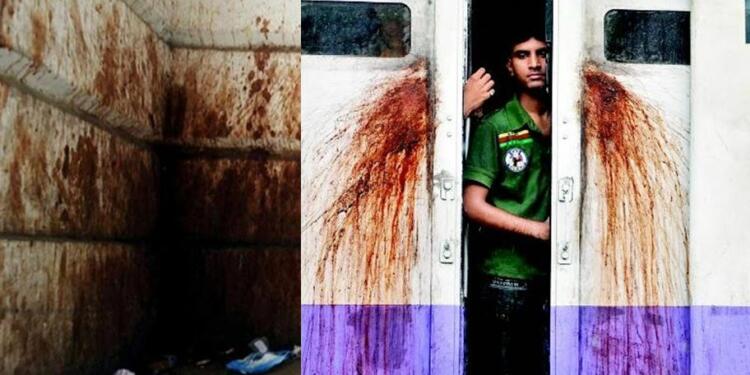Even with a Swachh Bharat campaign, Indians continue to hurt the Indian Railways’ revenue by spitting paan while free-loaders travel without tickets.
Despite starting a Swachh Bharat campaign in the first year of Prime Minister Narendra Modi taking charge of the office, the fundamental behavior of Indians has remained the same. The Indian Railways is the perfect microcosmic example of it. Reportedly, the railways is forced to spend a whopping amount of about Rs 1,200 crore every year just to clean the ‘gutkha’ stains. Additionally, thousands of gallons of water is wasted trying to get rid of the ugly-red paan stains splattered all over the railway premises.
According to a News 18 report, as public spitting remains a major nuisance despite more stringent provisions introduced during the COVID-19 pandemic, a pocket-sized reusable and biodegradable spittoon, with seeds that will grow into plants when it is disposed of, is the latest green innovation being pushed by the Railways to tackle the menace.
The government and railways being forced to shell such huge amounts to just clean paan stains come at a time when the latter is still reeling from the effects of the pandemic-induced lockdowns.
Presently, littering and spitting in railway premises or using the toilet when the train is on the platform costs violators Rs 500. However, the amount spent to clean the platforms and trains of paan stains dwarfs the amount collected in fines.
Freeloaders coughing up fines:
Speaking of fines, the freeloaders of the country have been forced to cough up thousands in crores over the years as fines. Reportedly, between April and November in 2021, the Central Railways earned over Rs 100 crore from passengers traveling without a ticket.
With over a hundred crore coming from a single division of the Indian railways, the numbers could be bigger when the complete data is compiled.
Cumulatively, the railways had earned Rs 1,938 crore through fines imposed on ticketless travellers between 2016-2020, a rise of 38.57 per cent from 2016. The data was revealed through an RTI filed by one Chandra Shekhar Gaur – a Madhya Pradesh-based activist.
A passenger traveling without a ticket needs to pay a minimum fine of Rs 250 along with the cost of the ticket. If a passenger refuses to pay the fine, the person is handed over to the Railway Protection Force (RPF) and booked under Section 137 of the Railways Act.
After that, the person is presented before a magistrate. The magistrate can fine him for Rs 1,000. In case the person still refuses to pay the fine, he or she may be jailed for up to six months.
Rs 36,000 crore loss for railways in the pandemic:
In August earlier this year, Union Minister Raosaheb Danve remarked that the Railways had suffered losses to the tune of Rs 36,000 crore during the coronavirus pandemic.
Also read: As it did during the first wave, Indian Railways is helping states fight the second wave of Corona
He said, “The passenger train segment always runs into losses. Since increasing the ticket fares affects the passengers, we cannot do so. During the pandemic, the Railways suffered losses of Rs 36,000 crore,”
The age-old adage of “You can lead a horse to water but you can’t make him drink,” holds true for the Indian public. Indian Railways is public property and the government can only go to a certain extent to keep it clean and safe. Rest is the civic duty of individual citizens.

























These pan masala pouchs are a nuisance. Just as you are searching for a formula to make crackers without barium salt, if you want a clean pan masala why not ban them until they can make a colourless pan masala offering same taste without any compromises on quality? This is an innovation in itself and can remove some stigma associated with people who eat them. It will also save their teeth to a very large extent.
Corona has had no effect on such bad habit of spitting